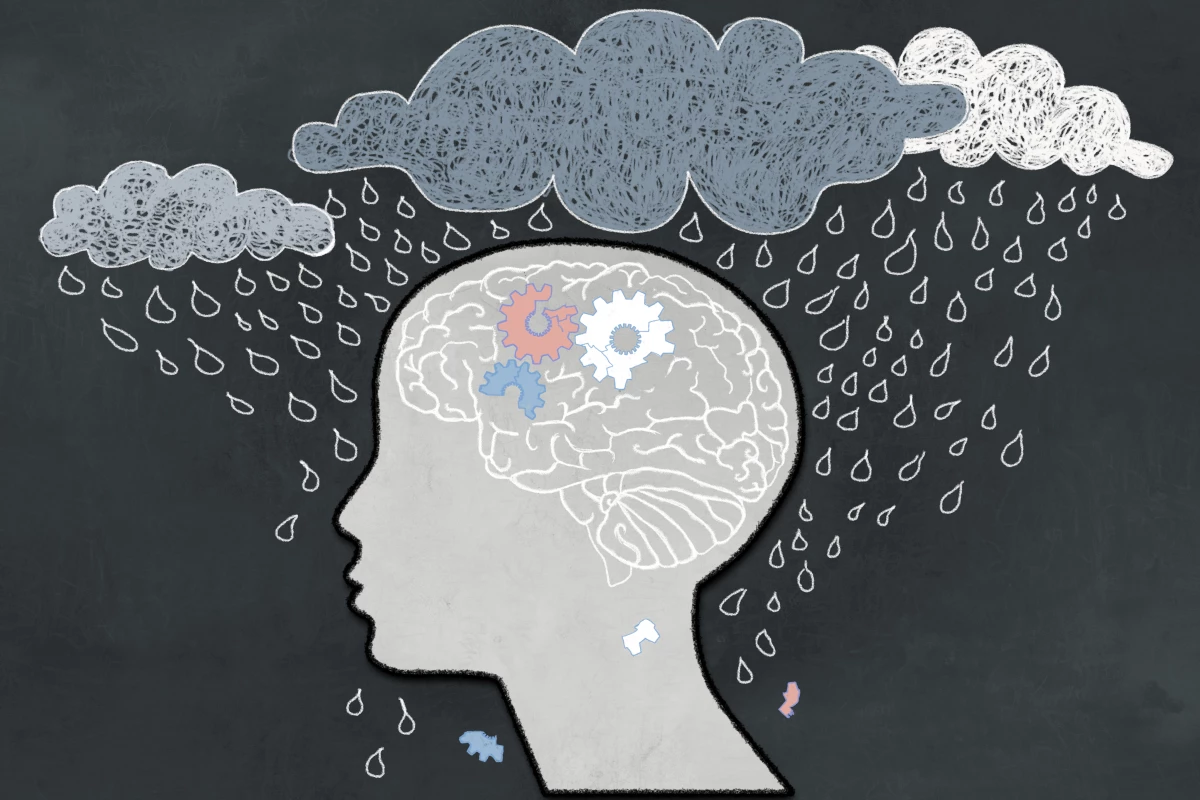Through a series of ingenious mouse experiments, researchers have discovered evidence that inflammation-induced histamine activity can inhibit the release of serotonin in the brain. The findings suggest histamine may play a key role in causing depression.
For several decades researchers have seen a distinct association between inflammation and depression. A variety of autoimmune conditions such as inflammatory bowel disease have been consistently linked with higher rates of mood disorders, however, there is still great debate over what kind of causal mechanism could directly associate inflammation with depression. A robust new study, from an international team of scientists, has found one possible missing link that could help explain how inflammation leads to depression.
The research began by creating a new kind of microelectrode that can be implanted in the hippocampus of mice to measure serotonin levels in real-time. Serotonin is a key mood-regulating neurotransmitter often focused on as a therapeutic target for depression.
To investigate how inflammation influences serotonin activity the researchers injected the animals with a toxin known to trigger inflammatory responses. Within minutes serotonin levels were seen dramatically dropping in the animals’ hippocampus.
The toxin used in the experiment is unable to cross the blood brain barrier, so the researchers knew it was likely that inflammation was responsible for the serotonin drop. The next step was to figure out how inflammation was directly causing the decrease in serotonin levels.
The researchers discovered it was increased levels of histamine in the brain, generated as part of the animals' inflammatory response, that was causing the reduction in serotonin by, “acting on inhibitory histamine H3 heteroreceptors on serotonin terminals.”
The next step in the research involved administering the animals' escitalopram, a common anti-depressant drug in a family called selective serotonin reuptake inhibitors (SSRIs). In the animals treated with the inflammatory toxin, SSRI administration did not increase serotonin levels.
In fact, it was discovered that the antidepressant’s effect was blunted because it hindered the brain’s ability to clear histamine, interfering with the regulation of serotonin levels.
Finally, to confirm this potential mechanism, the researchers treated the animals with histamine-reducing drugs alongside the antidepressant. And this combination of drugs saw serotonin levels rise again in the inflammation-induced mice.
“Our work shines a spotlight on histamine as a potential key player in depression,” says lead author on the study, Parastoo Hashemi. “This, and its interactions with the ‘feel-good molecule’ serotonin, may thus be a crucial new avenue in improving serotonin-based treatments for depression.”
Most people are probably familiar with histamines from the perspective of allergies and hay-fever. These molecules play a crucial role in the body’s immune response to foreign pathogens, as well as influencing sleep cycles, blood pressure and sexual function.
Common anti-histamines available over the counter for allergies work by blocking the ability of histamine molecules to bind with certain kinds of histamine receptors. So it is important to understand, standard antihistamines for allergies have no effect on this newly discovered mechanism.
Instead, in this study the researchers used drugs that completely stifle histamine levels across an entire body. And since histamine is vital for a number of bodily functions, it is not feasible to translate these findings immediately across to humans.
Also, as this research was only conducted in animals, more work will be needed to confirm whether the same mechanism is at play in humans. The researchers indicate it is possible this inflammation-induced histamine mechanism could help explain some of the inconsistencies in SSRI antidepressant effectiveness from patient to patient, but again, further research will be needed to confirm this hypothesis.
Hashemi says depression is undoubtedly a heterogeneous disorder, and this particular mechanism is unlikely to be a sole cause of mood disorders. But if it can be validated in humans, and a pharmacological target can be identified, then new depression treatments may be developed, including ones that enhance the efficacy of currently available SSRI drugs by stopping histamine from disrupting serotonin levels.
“Inflammation is a whole-body response and is therefore hugely complex,” says Hashemi. “Depression is similarly complex, and the chemicals involved are affected in myriad ways by both genetic and environmental factors. Thus we need to look at more complex models of depression behaviors in both mice and humans to get a fuller picture of both histamine and serotonin’s roles in depression.”
The new study was published in the journal JNeurosci.
Source: Imperial College London




